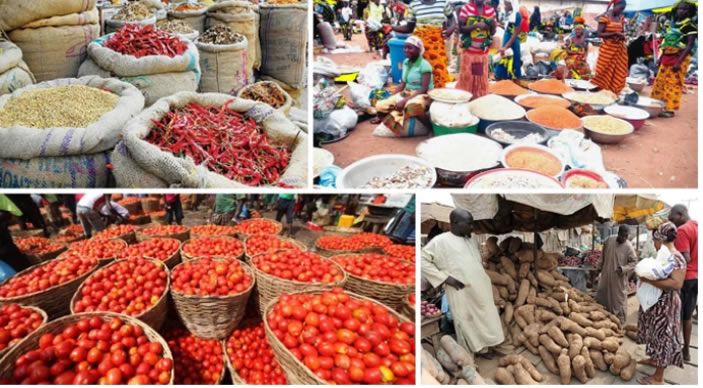
The prices of perishable items have significantly dropped in major towns across Yobe, Borno, and Adamawa states.
A survey at the Perishable Items Market in Damaturu, Yobe State, revealed that prices have fallen by about 50 percent. For instance, a large basket of tomatoes, which was sold for N120,000 between April and May, now costs N40,000, while the price of a small basket has dropped from N75,000 to N18,000.
Similarly, a bag of pepper, previously priced at N170,000, now sells for N82,000, and another variety of pepper has decreased from N75,000 in July to N70,000. A bag of okra, which was N50,000, is now selling for N25,000.
However, the price of onions has surged, with a bag now costing N50,000, up from the N28,000 to N30,000 range three to four months ago.
The market’s Chairman, Alhaji Muazu Abbas, attributed the price drops to the arrival of new produce in the market.
“Prices of perishable items usually drop whenever harvests are made and new goods arrive in the market, but the prices rise when there is shortage of goods,” he said.
However, the price of yam has surged at the Bayan Tasha Market in the metropolis.
An inspection revealed that two small tubers of yam, which sold for N1,500 in 2023, now cost N4,000. Meanwhile, three large tubers that were previously priced at N3,500 are now selling for N15,000.
When reached for comment, the Yam Sellers Leader at the market, Alhaji Habibu Mohammed, attributed the sharp rise in prices to a shortage of supply.
He also cited the increased cost of transporting yams from Taraba, Benue, Nasarawa, and Plateau states as a contributing factor to the price hike.
Similarly, the Chairman of the All Farmers Association of Nigeria (AFAN), Yobe Chapter, Alhaji Usman Ngari, voiced concerns over the high cost of establishing food crop storage facilities.
“Storage facilities preserve crops and increase profit, especially in cultivation of perishable items.
“Unfortunately, establishing such factories is capital intensive and most of us do not have that kind of money,” he said.
Ngari urged all levels of government to provide farmers with financial support to help them acquire storage facilities, which would enhance their productivity and income.
In Borno, the prices of perishable goods mirror those in Yobe. However, traders expressed optimism that prices will decrease further in the coming months as farmers begin harvesting tomatoes and other perishable crops in the state.
“The supplies we are getting now are from Kaduna and Kano,” Isa Mohammed, a dealer in Maiduguri vegetable market, said.
Grain dealer Mustapha Usman noted that the prices of grains produced in Borno, such as local rice, beans, maize, and millet, have remained high. He indicated that a reduction in prices is unlikely until the harvest begins in October.
